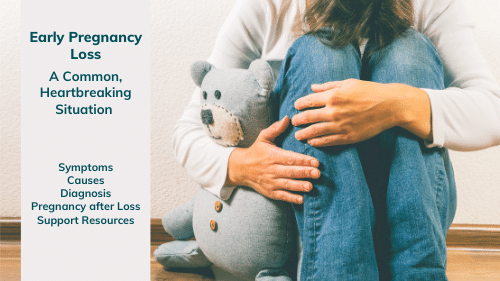Early Pregnancy Loss
2024-05-09T20:25:24-06:00Early Pregnancy Loss: A Common, Heartbreaking Situation The loss of a pregnancy in the first trimester goes by many names: miscarriage, early pregnancy loss, non-viable pregnancy, as well as the medical term, spontaneous abortion. Early Pregnancy Loss is often the preferred term while caring for patients and their partners during this heartbreaking time. This term helps convey the weight of the actual loss. The term miscarriage (literally mis-carry or to carry incorrectly) seems to place some sort of unnecessary burden or fault on the patient which is completely undeserved. Spontaneous abortion and other versions of this term that are used in medical notes are descriptive only to medical professionals and insurance billing experts. So, for the purposes of this article, the topic will be referred to as early pregnancy loss. Other types of non-viable early pregnancies, such as ectopic pregnancy, will not be covered here. Recurrent pregnancy loss, the loss of at least two or more consecutive pregnancies, is outside of the scope of this article as well. Early pregnancy loss is a very common occurrence. Early pregnancy loss occurs in up to 10-20% of clinically recognized pregnancies. For an individual, the exact risk of pregnancy loss



